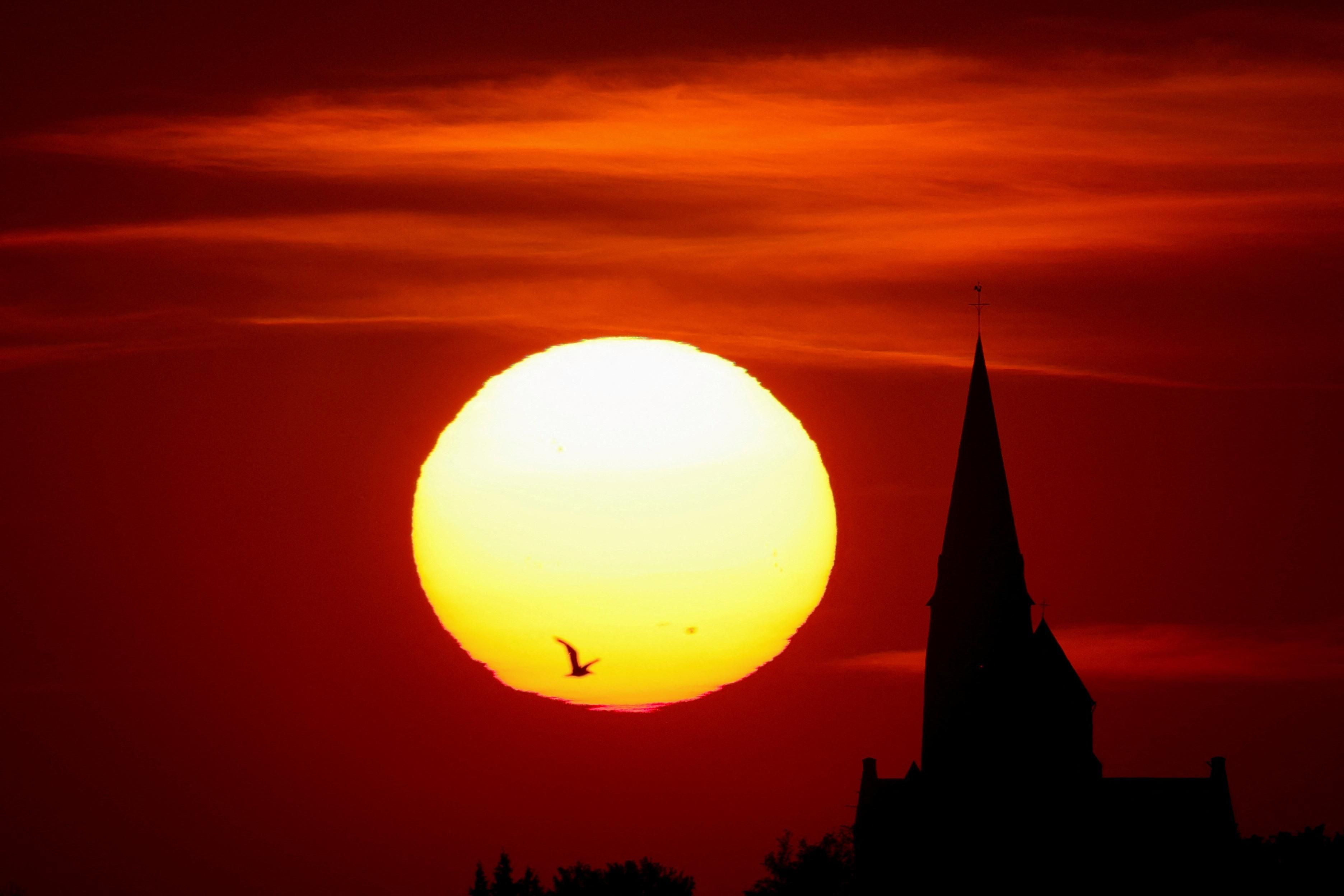What We're Watching: European scorcher, Zelensky's purge, Khan's comeback, Tory race
Europe feels the heat
European leaders are worried about storing enough energy to keep houses warm next winter, but many on the continent currently wish their houses were cooler amid this summer’s drastic heatwave. For the first time, temperatures are expected to exceed 40 C (104 F) in England this week, and the government is urging Brits to work from home. Meanwhile, firefighters are battling wildfires amid extreme temperatures in France, Greece, Portugal, and Spain. More than 1,000 people have died on the Iberian Peninsula, with temperatures having topped 47 C in Portugal last week, and the death toll is expected to rise across Europe. In France, experts are predicting a “heat apocalypse,” and environmental scientists warning that these summer heatwaves will soon become the norm, not the exception. In a bid to make progress in fighting climate change, leaders from 40 countries, including UN Secretary-General Antonio Guterres, met in Berlin on Monday for the 12th Petersberg Climate Change conference. The main focus of discussions was rebuilding trust between developed and developing countries ahead of this November’s COP27 climate summit in Egypt.
Zelensky purges suspected collaborators
William Shakespeare knew that for a lightweight to become a leader, he must sometimes banish his old friends. On Sunday, President Volodymyr Zelensky took down two of his most trusted allies, spy chief Ivan Bakanov and Prosecutor General Iryna Venediktova. He had little choice, he told listeners during a video speech. More than 60 officials working under their command, Zelensky explained, are suspected of working against Ukraine in Russian-occupied territory, and more than 650 treason and collaboration cases have been opened against Ukrainian law enforcement officials. “Such an array of crimes against the foundations of the national security of the state ... pose very serious questions to the relevant leaders,” Zelensky said. It’s a reminder that Russian security services have spent decades recruiting and embedding pro-Russian officials in senior positions within Ukraine’s government. Bakanov and Venediktova, who are considered Zelensky loyalists, have not yet been fired. (Bakanov is Zelensky’s childhood friend.) They are suspended, pending an investigation. But Ukraine’s president has signaled that he knows Russia’s invasion of Ukraine extends far beyond men with guns.
Khan makes a comeback in Pakistan
It wasn’t long ago — April to be precise — when Pakistan’s former Prime Minister Imran Khan was licking his wounds after a no-confidence vote ousted him from power. But after his party’s landslide victory in a provincial by-election this weekend, the former cricket star looks poised for a big comeback. His Pakistan Tehreek-e-Insaf party won 15 of the 20 seats up for grabs in Punjab, Pakistan’s most populous province, which is considered a bellwether for national politics. The rival Pakistan Muslim League-N party of current PM Shehbaz Sharif won just four seats in a region that's historically been one of its strongholds. Since being sacked, Khan has attracted huge crowds with speeches alleging a US-led conspiracy led to his ouster and by blaming his successor for the country’s reeling inflation crisis. A general election isn’t due until Oct. 2023, but Khan may be able to force one sooner than that: a new vote, he tweeted Monday, is “the only way forward.”
Tory race for future PM narrows
And then there were four. Since last week, when Britain’s Conservative Party released a list of eight candidates running for the top job to replace Boris Johnson as prime minister, three rounds of elections have narrowed the field by four. Monday’s third-round vote left Rishi Sunak, Penny Mordaunt, Liz Truss, and Kemi Badenoch in the running, ending Tom Tugendhat’s candidacy. The final two rounds will take place on Tuesday and Wednesday, leaving two candidates in the contest. Select Conservative Party members will then cast their mail ballots to select Johnson’s successor. So far, Sunak has been no. 1 in the first three rounds, followed by Mordaunt and then Truss. The Tory contest has been a roller-coaster, with the first live debate revealing plenty of friction, especially with regard to taxation, Brexit, and trust. In the latest debate, things got so personal between Sunak and Truss that they refused to meet again,which forced SkyNews to cancel Tuesday’s scheduled debate. But that won’t stop the voting process: by Wednesday, we will know the two finalists, one of whom will be named as the UK’s next PM on Sept. 5.This comes to you from the Signal newsletter team of GZERO Media, a subsidiary of Eurasia Group that offers balanced, nonpartisan reporting, and analysis of foreign affairs. Subscribe to Signal today.
